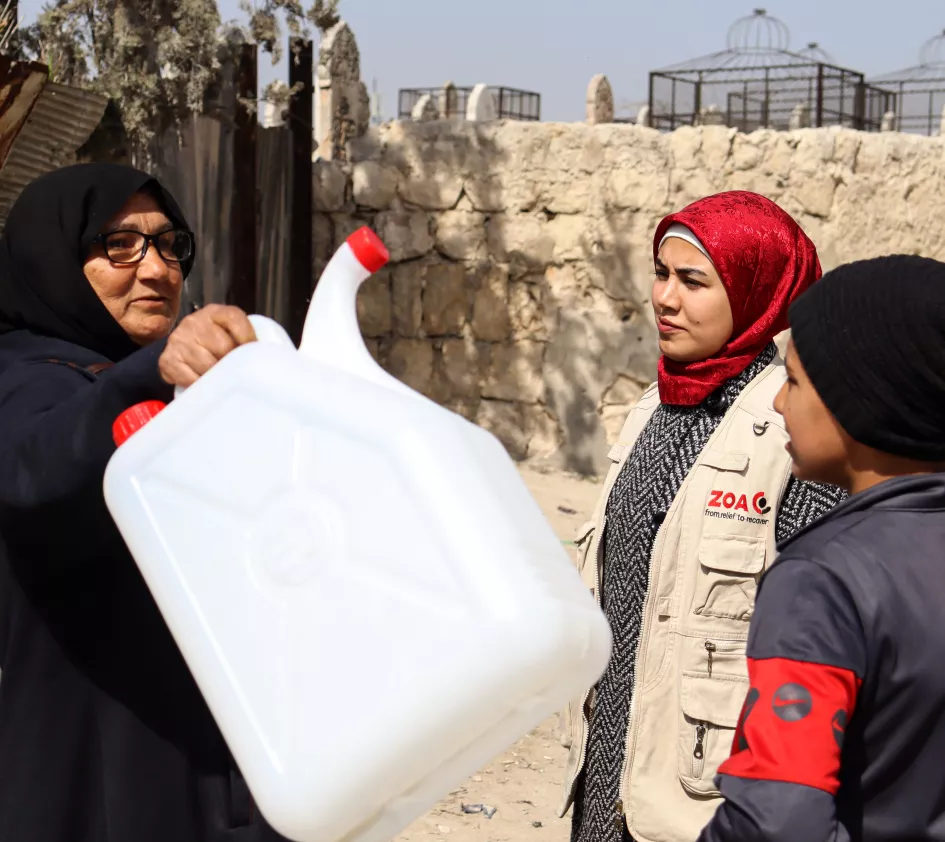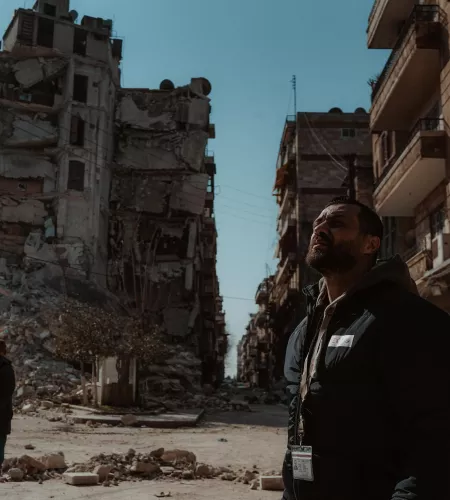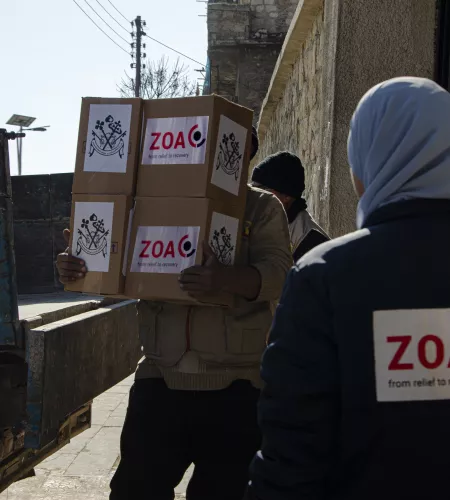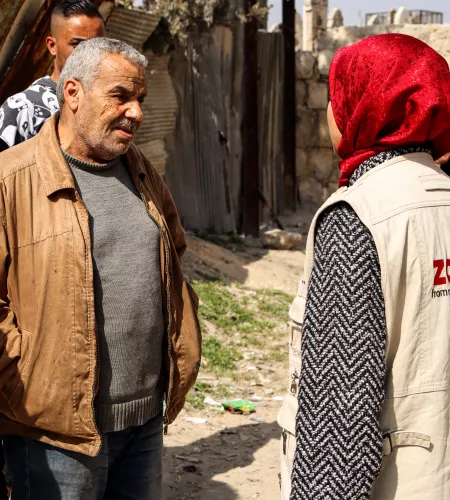Despair
“I didn't immediately realize the magnitude of this disaster,” she says. “In Damascus, we didn't feel the earthquake that strong.” A day later she was on her way to Aleppo to support her ZOA colleague there, regional manager Wael Abboudi, in setting up emergency aid. Together with local partners, they immediately started distributing jerry cans and food from shelters.
Meanwhile, Nedaa's family stayed in the garden next to the mosque, fearing the collapse of their house. “Fortunately, they were able to return after three days,” says Nedaa. “An engineer checked the house and it turned out to be safe enough.” Their neighbours didn't dare to go back. Two of their relatives were missing. Two days after the disaster, they were pulled alive from under the rubble.




